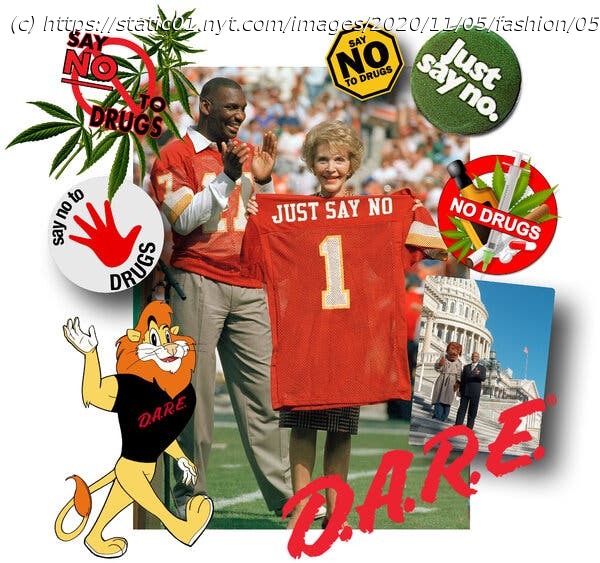All kinds of Americans have turned their back on the destructive war on drugs.
It can take a while to determine the victor in a presidential election. But one winner was abundantly clear on Election Day. Drugs, once thought to be the scourge of a healthy society, are getting public recognition as a part of American life. Where drugs were on the ballot on Tuesday, they won handily. New Jersey, South Dakota, Montana and Arizona joined 11 other states that had already legalized recreational marijuana. Mississippi and South Dakota made medical marijuana legal, bringing the total to 35. The citizens of Washington, D.C., voted to decriminalize psilocybin, the organic compound active in psychedelic mushrooms. Oregon voters approved two drug-related initiatives. One decriminalized possession of small amounts of illegal drugs including heroin, cocaine and methamphetamines. (It did not make it legal to sell the drugs.) Another measure authorized the creation of a state program to license providers of psilocybin. Election night represented a significant victory for three forces pushing for drug reform for different but interlocking reasons. There is the increasingly powerful cannabis industry. There are state governments struggling with budget shortfalls, hungry to fill coffers in the midst of a pandemic. And then there are the reform advocates, who for decades have been saying that imprisonment, federal mandatory minimum sentences and prohibitive cash bail for drug charges ruin lives and communities, particularly those of Black Americans. Decriminalization is popular, in part, because Americans believe that too many people are in jails and prisons, and also because Americans personally affected by the country’s continuing opioid crisis have been persuaded to see drugs as a public health issue. The war on drugs has lost its political allure for many conservatives. John A. Boehner, the former Republican speaker of the House, was once a staunch opponent of marijuana legalization. He is now the chairman of the National Cannabis Roundtable, a lobbying group. “When cannabis is on the ballot, it wins,” Mr. Boehner said of Tuesday’s results. “Even with hyper-partisanship everywhere else, people of all stripes agree about cannabis reform.” So do businesspeople. “It’s not really a hippie peacenik substance anymore,” said Martin Lee, a drug historian and CBD information advocate. “It’s big business. Billions of dollars are involved with this.” The money that cartels and drug companies found in illegal and unintended use of drugs has become attractive to many, given the substances’ growing medical and cultural legitimacy. Plant-based drugs, for example, are a growing category in the booming business of wellness. Michael Pollan, the author of “How to Change Your Mind,” which focused on the cultural history and medicinal use of psychedelics, said that he believed there were two currents at work in Tuesday’s results: the public’s exhaustion with the drug war and the reframing of marijuana and psilocybin as medicines. Now marijuana, psilocybin and MDMA (the scientific name for Ecstasy or Molly) are increasingly seen as good for you. “The image of psychedelics was closely tied to the counterculture and Timothy Leary,” Mr. Pollan said. “Now, when people think about psychedelics, many of them think about psychotherapy. They think about healing.” “Twenty years ago, no one thought a night like this would be possible,” said Kassandra Frederique, the executive director of the Drug Policy Alliance, which pushes for criminal justice reform on drugs. She called the passage of the measures, particularly in Montana and South Dakota, “a resounding mandate that it is time for us to end the drug war and that decriminalization is politically viable.” In 1969, two years before the dawn of the drug war,84 percent of Americans thought marijuana should be illegal, according to the Pew Research Center. By 2019, again according to Pew,91 percent of Americans supported the legalization of marijuana. Political opposition to marijuana has not disappeared entirely.





![Iga Świątek królową Madrytu. Zdetronizowała Arynę Sabalenkę i wyśrubowała niesamowite rekordy [WIDEO]](http://nhub.news/wp-content/uploads/2024/05/thumb2da9edb6b9ed74c66b52ea9b02c32f3c-100x75.jpeg)
